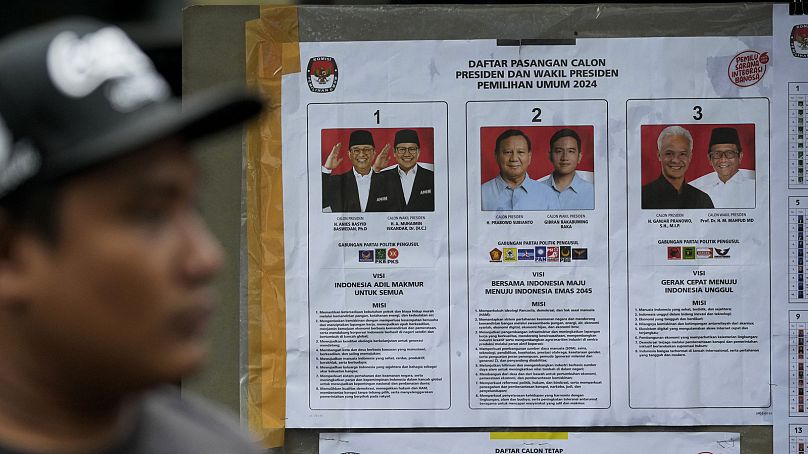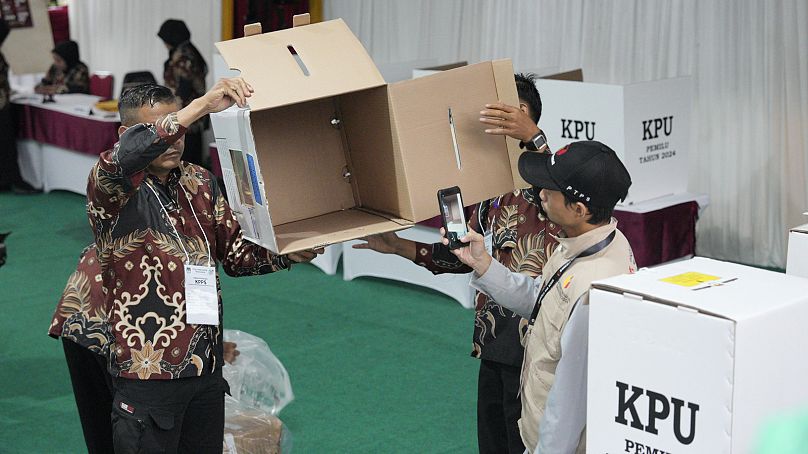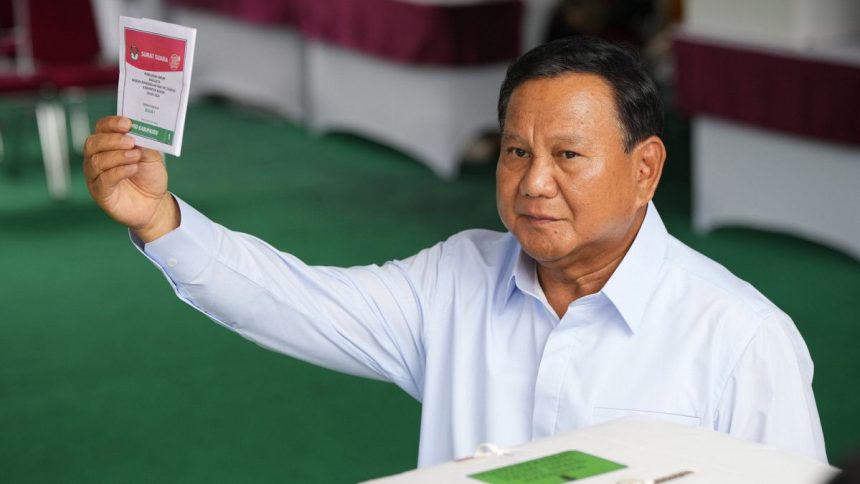Polls have closed in the first round of Indonesia’s presidential elections, as early, unofficial vote counts suggest that Defence Minister Prabowo Subianto could secure enough votes to avoid a runoff.
The 72-year-old former general is the only candidate with ties to the Suharto dictatorship, which he served as a special forces commander.
He also has close ties to the immensely popular current president, Joko Widodo, whose second and final term is coming to a close.
Unofficial tallies suggest he could be in the lead at 58% of the vote, comfortably ahead of the 50% needed to avoid a second roud
Two former provincial governors, Anies Baswedan and Ganjar Pranowo, are also in the race.
Voting ended Wednesday afternoon with no major incidents reported across the 17,000-island archipelago.
The current president Widodo’s rise from a riverside slum to the presidency has bolstered Indonesia’s democracy in a region rife with authoritarian regimes.
But with Widodo’s eldest son, Gibran Rakabuming Raka, on the ballot as Subianto’s vice-presidential running mate, some observers fear that the outgoing president could be building a dynasty.

Widodo’s successor will inherit an economy with impressive growth and ambitious infrastructure projects, including the ongoing transfer of the nation’s capital from congested Jakarta to the frontier island of Borneo at a staggering cost exceeding $30 billion (€28 billion).
The election also has high stakes for the international community, particularly the US and China.
Indonesia has a huge domestic market, natural resources like nickel and palm oil, and diplomatic influence with its Southeast Asian neighbours.
Biggest one-day ballot in history
The vote, which coincides with some 20,000 national, provincial and district parliamentary ballots, is the biggest single-day election on record, with over 200 million people registered to vote out of the country’s 270 million population.
The official count may not be finished for up to a month, but quick counts have provided an accurate picture of the results of all four presidential elections held in Indonesia since it began direct voting in 2004.
The logistics of the vote are daunting. Ballot boxes and ballots were transported by boats, motorcycles, horses and on foot in some of the more far-flung locations.
A fierce thunderstorm flooded several streets of Jakarta at dawn Wednesday. Last week, damage from heavy rains in Central Java’s Demak regency prompted the postponement of the election in 10 villages.

Subianto takes to TikTok on campaign trail
During the campaign period that concluded last weekend, frontrunner Subianto and his strategists used AI and social media platforms like TikTok to soften his image by portraying him as a cuddly grandfather to his youthful running mate.
Rejected by human rights activists, he danced on the campaign stage and promised to generate nearly 20 million jobs in his first term if elected.
One of his contenders is Anies Baswedan, the former head of an Islamic university who served as governor of Jakarta until last year.
He has previously said democracy in Indonesia is under threat, given Subianto’s choice of the president’s son as running mate.
“This means that there is a decline in trust, it means that our democracy is experiencing a decline in quality, it means that many legal rules are being bent,” he told AP last month.
The other candidate in the race, Ganjar Pranowo, is the ruling party’s candidate, but does not have Widodo’s support.
While governor, Pranowo refused to allow Israel to participate in the Under-20 FIFA World Cup to be held in his province. FIFA subsequently dropped Indonesia as host of the games, angering both Indonesian soccer fans and Widodo.
Israel and Indonesia, the world’s largest Muslim-majority nation, do not have diplomatic ties.











